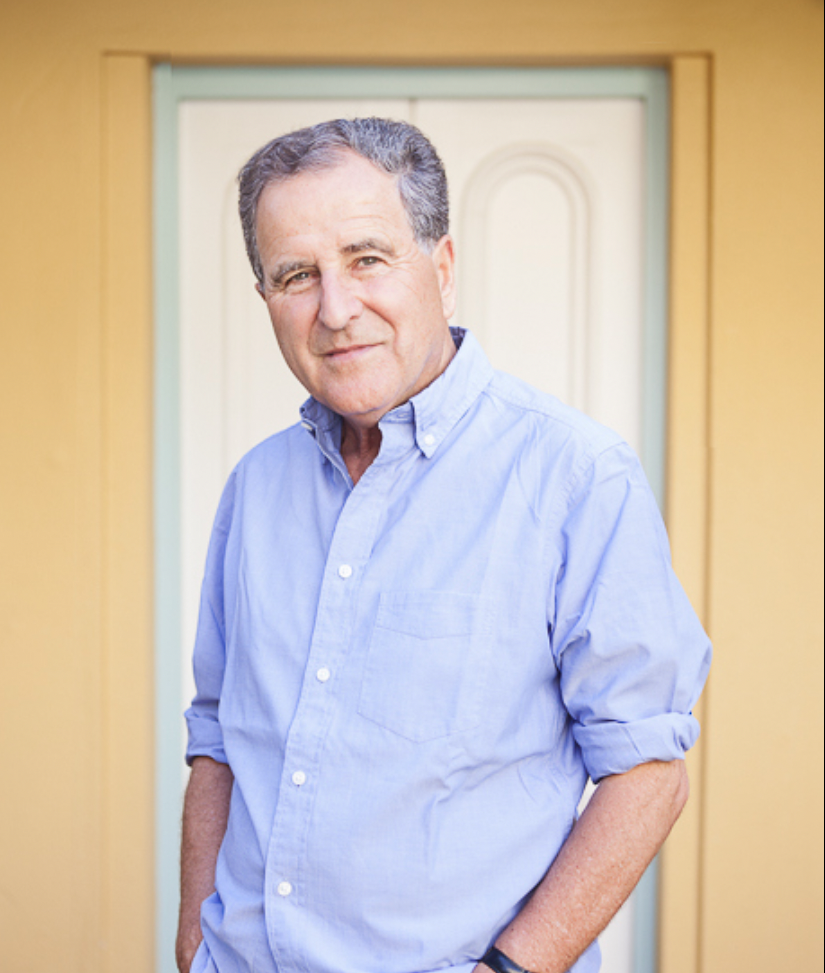
23 Feb A Sense of Direction – Nicolas Kent
Born in 1945, director Nicolas Kent grew up in Hampstead, then studied English at Cambridge University in the mid-1960s, where got involved with student theatre and discovered directing. His subsequent six-decade career started with jobs at Liverpool Playhouse, Berkshire’s Watermill Theatre, Edinburgh’s Traverse Theatre and the Oxford Playhouse. He became artistic director of the Tricycle Theatre – now Kiln – in 1984, eventually standing down in 2012 after 28 years in charge.
He is best known for his staging of several influential verbatim shows, adapted from the transcripts from public inquiries and tribunals, tackling subjects including the murder of Stephen Lawrence, the death of David Kelly, Guantanamo Bay, and the London Riots. His latest, Grenfell: System Failure, is the sequel to 2021’s Grenfell: Value Engineering, and is currently running at the Playground Theatre.
When did you find out about directing?
I think I vaguely knew what a director was when I was at school. Then on my first day of university I went to the fair where all the societies display their wares. It was done alphabetically, so the first thing I came across was the Amateur Dramatic Club. I got involved, and that was when I really got interested in directing.
How did you become a director?
I was very lucky to get on the ABC TV Trainee Director Scheme after university and went to work at Liverpool Playhouse. Then I set up my own company with guarantees from two or three venues, and off I went. Things were simpler back then. There was much less bureaucracy. You could do a production for £800.
Who or what was the biggest help along the way?
Directing was much more collegiate back then. Everyone knew everyone. My contemporaries were people like Richard Eyre and Clare Venables. It was a close-knit community. We would meet up, and ring each other up, and help each other. That does not seem to happen much now.
What work are you most proud of?
The verbatim plays. The Colour Of Justice, about the murder of Stephen Lawrence, had a big effect on people. So did Guantanamo, about Guantanamo Bay. I hope these two Grenfell Plays will, too.
What work are you least proud of?
There are quite a few shows I didn’t direct very well, but nothing where I feel like the content of the piece was wrong in any way. It is just that I did not do full justice to it as a director.
Who – or what – is your biggest theatrical influence?
I was very inspired by the work of Peter Brook and Ariane Mnouchkine when I was younger. Really, though, it is writers. I love writers. I particularly revere a French writer called Jean-Claude Grumberg. Cecil Taylor was a big influence on me, too. And James Baldwin. I got to know him quite well.
Is there a show that you really want to stage?
I enjoy doing new work more than anything, but I would love to have a go at Macbeth again.
What is your financial situation?
If I wasn’t receiving a pension now, and if it wasn’t for a lot of very generous people and charitable trusts, I could never put another play on. Trusts and foundations have bankrolled most of my recent work. This government just does not give a damn about culture or art.
What do you enjoy most about directing?
I love being with actors. I love being with my tribe.
What are your frustrations with directing?
The enormous bureaucracy. And the profit motive, left, right and centre.
What fills you with dread about the future of theatre?
I was very lucky. My career happened at a very good time after Thatcherism, when it was boom time for the arts. We were properly subsidised and we were allowed to do really good work, and the arts became one of this country’s greatest exports. Now, we are starved by the government. It is terrible.
What gives you hope for the future of theatre?
Well, a new government would give me hope. I’m also hopeful about the theatre becoming much more diverse, and I am hopeful about the incredibly talented young writers and directors and actors we have. And I also hope that some of us older people will not be thrown on the scrap heap.
Is there a city of country that you have not worked in yet, but would love to?
I’ve been very lucky. I’ve toured most of the Northern Hemisphere through my work. It is a real privilege to work in the regions, though. I love working at the Traverse in Edinburgh in particular.
What are you working on at the moment?
Grenfell: System Failure is on at the Playground Theatre until February 26, then tours to The Tabernacle and Marylebone Theatre until March 26.
It is based on the second phase of the inquiry into the fire at Grenfell Tower in 2017, which deals with the circumstances surrounding the fire. We felt it would be wrong to do anything based on phase one of the inquiry, which dealt with personal grief and personal tragedy.
We dealt with the first part of phase two in Grenfell: Value Engineering in 2021, and it got an enormous response. Michael Gove came to see it and found it very compelling. And he has since told people that the show was part of the motivation behind his action against cladding manufacturers.
Grenfell: System Failure deals with the second part of the second phase of the inquiry. Richard Norton-Taylor and I work from a transcript of the inquiry. We add in clarifications and dates to help the audience follow it, but otherwise the script is exactly as was said in the inquiry itself.
ENDS
Fergus Morgan is SDUKs resident blogger.
